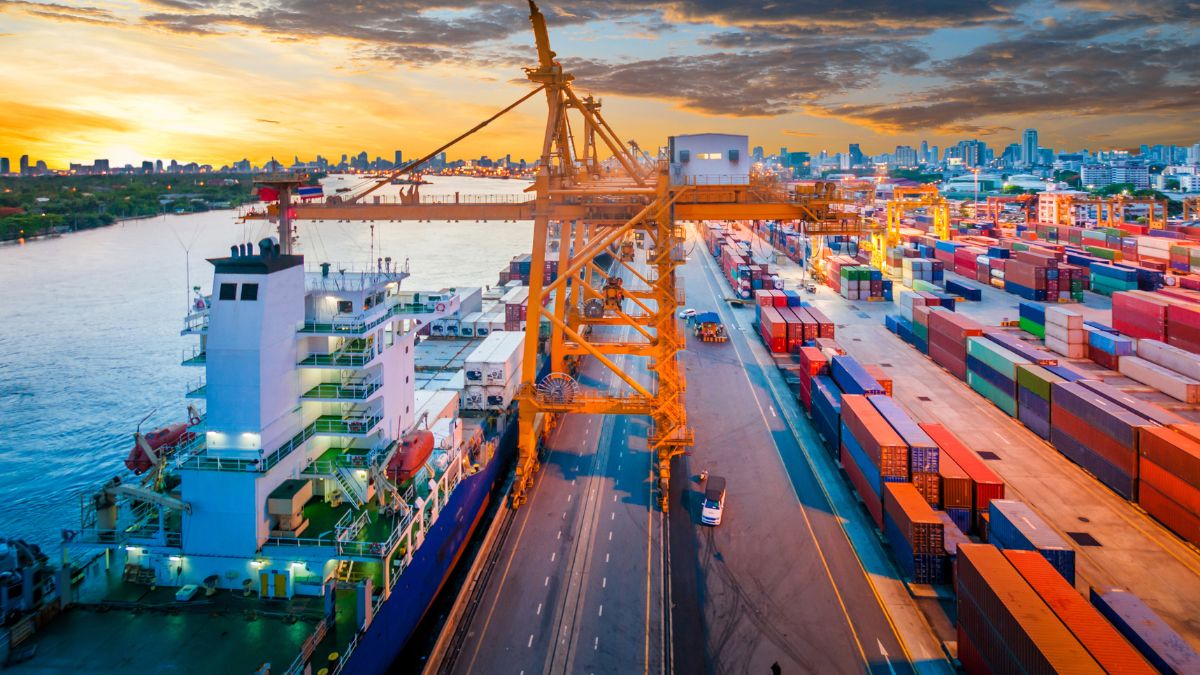Job Overview Logistic Officer: What is Logistic Officer?
A logistics officer is a professional who is responsible for planning, organizing, and managing the flow of goods and services within an organization. They work to ensure that the right materials are in the right place at the right time, and that they are delivered in a cost-effective and efficient manner.
Logistics officers typically have a bachelor’s degree in logistics, supply chain management, or a related field. They may also have experience in the military or in a related industry.
Logistic Officer Duties and Responsibilities
1. Ensure the smooth flow of production, procurement, and delivery of the company’s products or services.
- Develop and implement logistics plans that align with the company’s overall business goals.
- Coordinate with suppliers and customers to ensure that the right materials are in the right place at the right time.
- Track shipments and monitor delivery status to ensure that products are delivered on time and in good condition.
- Resolve any logistics-related issues that may arise.
2. Manage inventory and distribution of goods efficiently and effectively.
- Forecast demand for products and set inventory levels accordingly.
- Select the right transportation mode for each shipment.
- Manage warehouse operations and ensure that products are stored and shipped correctly.
- Track inventory levels and identify any potential problems.
3. Handle logistics-related complaints or issues and take appropriate action.
- Investigate complaints and identify the root cause of the issue.
- Take corrective action to resolve the issue and prevent it from happening again.
- Communicate with customers to keep them updated on the status of their complaint.
4. Schedule shipments and monitor shipment status.
- Work with carriers to schedule shipments.
- Track shipments and monitor delivery status to ensure that products are delivered on time and in good condition.
- Communicate with customers about delivery status.
5. Manage logistics documentation and maintain it in an organized manner.
- Create and maintain shipping documents, bills of lading, and other related paperwork.
- Organize and store logistics documentation in an accessible and secure location.
- Track the status of logistics documentation and ensure that it is up-to-date.
6. Communicate with production, warehouse, and sales teams to ensure product availability and timely delivery.
- Coordinate with production to ensure that products are made on time.
- Work with the warehouse to ensure that products are stored and shipped correctly.
- Work with sales to ensure that customers have the products they need when they need them.
7. Arrange international shipments and handle export-import permits.
- Work with customs brokers to obtain the necessary permits.
- Coordinate with carriers to ship products internationally.
- Track shipments and monitor delivery status to ensure that products are delivered on time and in good condition.
8. Monitor supplier performance and take action to improve efficiency and product quality.
- Evaluate supplier performance.
- Negotiate contracts with suppliers.
- Work with suppliers to improve quality and efficiency.
These are just some of the duties that a logistics officer may be responsible for. The specific duties may vary depending on the size and type of organization.
Logistics Officer Requirements
- Bachelor’s degree in Logistics, Operations Management, or a related field.
- Minimum of working experience in logistics or supply chain management.
- Excellent organizational and time management skills.
- Strong communication and interpersonal skills.
- Proficient in Microsoft Office, especially Excel.
- Familiarity with logistics software and inventory management systems.
- Ability to work independently and collaboratively as part of a team.
- Detail-oriented and able to multitask in a fast-paced environment.
Relation to Other Jobs: Logistic Officer
As a logistic officer, there are several jobs or positions that you may have relationships with, such as:
- Supply Chain Manager
The logistic officer and the supply chain manager work together to ensure the efficient movement and management of goods and materials. While the logistic officer is responsible for the physical movement and delivery of goods, the supply chain manager oversees the entire supply chain process, from sourcing to delivery. - Procurement Officer
The logistic officer may collaborate with the procurement officer to ensure the timely sourcing and delivery of goods and materials. The procurement officer is responsible for purchasing materials and supplies for the organization, and the logistic officer works to ensure that these materials are delivered on time and in the correct quantity. - Warehouse Manager
The logistic officer may work closely with the warehouse manager to manage inventory levels and ensure that products are available when needed. The warehouse manager oversees the storage and management of goods in the warehouse, and the logistic officer works to ensure that products are delivered to the warehouse and stored correctly. - Transportation Manager
The logistic officer may also collaborate with the transportation manager to coordinate the movement of goods and materials. The transportation manager is responsible for managing the transportation network and ensuring that goods are delivered to their destination on time and in the most efficient manner.
Logistic Officer Career Path
A logistic officer career path typically involves starting out in an entry-level position and then advancing through the ranks as skills and experience are gained. Here are the typical career steps for a logistic officer:
1. Entry-Level Position
The first step in a logistic officer career path is usually an entry-level position such as a logistic assistant or inventory control clerk. In this role, the individual will be responsible for tasks such as managing inventory, preparing shipping documents, and coordinating transportation.
2. Logistic Officer
After gaining some experience in an entry-level position, an individual can move up to become a logistic officer. In this role, the individual will take on more responsibilities such as managing the entire logistics process, coordinating with suppliers and customers, and ensuring the efficient movement of goods and materials.
3. Senior Logistic Officer
As a logistic officer gains more experience, they may be promoted to a senior logistic officer role. In this role, the individual will be responsible for overseeing a team of logistic officers, developing and implementing logistics strategies, and ensuring compliance with regulations and policies.
4. Logistics Manager
The next step in a logistic officer career path is often a logistics manager position. In this role, the individual will be responsible for overseeing all aspects of the logistics operation, including procurement, transportation, inventory management, and customer service.
5. Director of Logistics
The highest level of a logistic officer career path is the director of logistics position. In this role, the individual will be responsible for developing and implementing logistics strategies across the entire organization, managing a large team of logistics professionals, and ensuring the efficient movement of goods and materials on a global scale.
Overall, a logistic officer career path offers many opportunities for advancement and growth, with potential for leadership roles and increased responsibility over time.
Average Salary Logistic Officer
The average salary of a logistic officer can vary depending on their location, as the cost of living and job market can impact the salary range. Here are the average salaries for logistic officers in different locations:
1. United States
The average salary for a logistic officer in the United States is around $51,000 per year, according to Payscale. However, this can vary depending on the state and city. For example, logistic officers in New York City earn an average salary of $58,000 per year, while those in Houston, Texas earn an average of $47,000 per year.
2. United Kingdom
The average salary for a logistic officer in the United Kingdom is around £25,000 per year, according to Glassdoor. However, this can vary depending on the city. For example, logistic officers in London earn an average salary of £28,000 per year, while those in Manchester earn an average of £22,000 per year.
3. Australia
The average salary for a logistic officer in Australia is around AU$62,000 per year, according to Payscale. However, this can vary depending on the city. For example, logistic officers in Sydney earn an average salary of AU$66,000 per year, while those in Melbourne earn an average of AU$58,000 per year.
4. Canada
The average salary for a logistic officer in Canada is around C$49,000 per year, according to Payscale. However, this can vary depending on the city. For example, logistic officers in Toronto earn an average salary of C$53,000 per year, while those in Vancouver earn an average of C$47,000 per year.
Logistic Officer Working Condition
- Office Environment
Logistic officers often work in an office setting, where they can perform administrative tasks such as coordinating transportation, managing inventory, and communicating with suppliers and customers. - Warehouse Environment
Logistic officers may also work in a warehouse environment, where they oversee the storage and management of goods and materials. This environment may involve physically demanding tasks such as lifting heavy objects and operating machinery. - Travel
Logistic officers may be required to travel to various locations to oversee logistics operations or meet with suppliers and customers. This could involve domestic or international travel, depending on the scope of the logistics operation. - Deadlines
Logistic officers often work with tight deadlines and must ensure that products are delivered on time and in the correct quantity. This may involve working long hours or on weekends to ensure that deadlines are met. - Teamwork
Logistic officers often work as part of a team and must collaborate with other departments and individuals to ensure that logistics operations run smoothly.
FAQ About Logistic Officer
A logistic officer is responsible for managing the logistics operations of an organization, including the storage, transportation, and distribution of goods and materials.
The job duties of a logistic officer may include overseeing inventory management, coordinating transportation, communicating with suppliers and customers, managing logistics budgets, and ensuring compliance with regulations and policies.
A bachelor’s degree in business administration, logistics, or a related field is typically required for a logistic officer position. In addition, strong organizational and communication skills, attention to detail, and knowledge of logistics software and technology are also important.
Logistic officers may be employed in a variety of industries, including manufacturing, retail, healthcare, and transportation.
A logistic officer career path typically involves starting out in an entry-level position and advancing to roles such as logistic officer, senior logistic officer, logistics manager, and director of logistics.
The average salary for a logistic officer can vary depending on location and other factors, but according to Payscale, the average salary in the United States is around $51,000 per year.
The working conditions for a logistic officer can vary depending on the industry and company they work for, but may involve working in an office or warehouse environment, traveling to various locations, and working with tight deadlines and as part of a team.
Read more:



